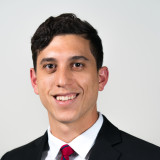I listened carefully as the patient before me unloaded her frustrations at the start of our clinic visit. “I’ve already seen three different ENT doctors for my nose. Isn’t ENT a specialty? Why do I have to see three specialists in the same specialty for the same part of my body?” I sympathized with her plight, trying to justify her meandering journey through the health care system as best I could. With an increasingly complex body of knowledge and skills involved, medicine has trended toward increasing specialization. General practitioners are disappearing, and specialists are becoming sub-sub-specialists.
There are many drivers of this hyperspecialization. First and foremost, the quantity and complexity of medical knowledge has increased exponentially over time. To illustrate this, consider the growth of First Aid for the USMLE Step 1, the most widely used study resource among medical students globally. This text is written to contain only the most essential knowledge and facts that medical students are expected to know. The most recent 32nd edition contains 848 pages. The 20th edition published 12 years earlier contains 624 pages. That is an average of 19 pages of new essential facts per year. Every year there is more to know.
There are other incentives for specialization as well. Specialists typically reap financial rewards with higher salaries and reimbursement rates. Specialization also engenders expertise. There are career benefits, such as increased employment and promotion opportunities, when you are one of the few practitioners who can competently perform a highly technical and specialized procedure. Many specialists also appreciate the status and recognition that comes with their position.
Yet the trend toward increasing specialization has created numerous conflicts. There has long been concern about a shortage of primary care physicians and general practitioners. A 2021 annual report published by the AAMC declared, “A primary care physician shortage of between 21,400 and 55,200 is projected by 2033.” Further, primary care residencies are generally less competitive, with only 64% of positions filled by American medical graduates in 2022 (about 94% of available primary care positions were filled in total). More trainees are also choosing to pursue additional fellowship training, as evidenced by a recent study in my own specialty that found the number of residents choosing to do an otolaryngology fellowship increased from 45.6% in 2011 to 61.5% in 2019. This trend has been seen in other fields as well, including general surgery and internal medicine. Interestingly, the drift toward increasing training and specialization is not unique to medicine. It is occurring across the modern world, especially in complex and highly technical fields, driven by increasing competition, knowledge, education, and demand.
This shifting topography is problematic in medicine because primary care doctors form the bedrock of a functioning health care system. Generalists are health care gatekeepers, coordinators, and preventers. Primary care doctors have a broad skillset, manage chronic disease, and oversee overall health and wellness. They are critical to prevention, which over time can have massive effects on health system efficiency, cost, and utilization. They can reduce utilization of emergency services, unnecessary tests, and expensive specialty consultations. When a person receives almost exclusively specialty care, it can lead to frustrating and fragmented care delivery. Returning to the vignette at the start, it probably shouldn’t take three specialists to address problems with the nose, although there are always exceptions. When it does, what could have been accomplished in one visit begets three or four. A patient may be overdiagnosed. Wait times increase. Costs increase. Care delivery becomes maddeningly inefficient.
This begs the question – is there any role for specialists to practice preventive care and broaden their scope of practice when feasible? In sub-specialty clinic, we are sometimes taught to eschew any complaints or issues that are not immediately within our wheelhouse, and for good reason. Most specialists don’t have the working knowledge or the time to address multiple different issues in a single visit. For example, a fellowship trained neurotologist understandably does not want to spend time refilling prescriptions for allergic rhinitis, nor do they have the expertise to manage a thyroid mass. Moreover, clinics are already at maximum capacity and strained for time even when prioritizing only one specific chief complaint. It doesn’t take long to realize this, rushing through 4-5 visits per hour and still finishing the day 90 minutes behind schedule, an experience I’m sure many clinicians have struggled with.
Yet every fellowship trained physician should have a working knowledge of how to manage bread and butter issues within their specialty. It may take another 2 minutes to discuss a related problem, or to address preventive issues within your scope of practice. That could save your patient a phone call, another doctor’s visit, or even a trip to the ED. Could a sub-specialty clinic function as a fallback preventive and general clinic, maximizing the value and support provided in each visit, coordinating care similar to a general practitioner, always incorporating a comprehensive physical exam, spending an extra few minutes addressing cerumen impaction or whatever it may be?
Of the many challenges with this approach, one I personally struggle with is the push-pull relationship between specialization and expertise. The more one becomes an expert in one specific subject, the less one knows about everything else. There is a tradeoff between breadth of skill and depth of mastery. In the modern world, if you want to be the best at something, it must be the only thing you do. On a more personal level, the tradeoff between breadth and depth can create a conundrum regarding career choices. As I contemplate fellowship training and my future scope of practice, I feel a pull to become a true expert, but I also lament the loss of general knowledge. If I become an ear surgeon, I may never perform a parotidectomy again, a surgery which I very much enjoy. If I become a generalist, I can perform parotidectomies but any complex ear case will be referred to someone else. In every choice there are tradeoffs. In these tradeoffs we can strive for balance on occasion, in the hopes of making our lives and the lives of our patients a little better.
Do you think it's better to be specialized and an expert, or full of useful general knowledge? Which are you? Do you wish you were the other? Share in the comments.
Dr. Benjamin Ostrander is a current otolaryngology resident at UC San Diego. He loves beach days, long bike rides, cooking elaborate recipes, and playing music. Ben is passionate about art and design, creativity, surgical innovation, and global health. Ben is a 2021–2022 Doximity Op-Med Fellow.
Image by GoodStudio / Shutterstock







